Hi, I'm new to this forum - and a new tortoise Mum!
After we experienced some very hot , humid and rainy weather back in March we were pleasantly surprised to find 19 Leopard tortoises in our garden!!
We never owned a tortoise (so it was definitely not expected) but we are so happy!
Don't worry, we're not keeping them all - they will be taken to a reptile rescue center that focuses on releasing them back into their natural habitat.
See attached pics for all the cuteness!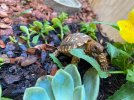
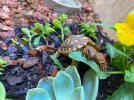
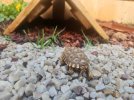
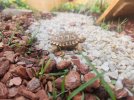
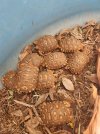
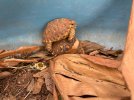
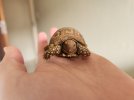

After we experienced some very hot , humid and rainy weather back in March we were pleasantly surprised to find 19 Leopard tortoises in our garden!!
We never owned a tortoise (so it was definitely not expected) but we are so happy!
Don't worry, we're not keeping them all - they will be taken to a reptile rescue center that focuses on releasing them back into their natural habitat.
See attached pics for all the cuteness!







